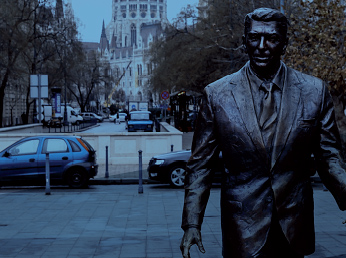
16 Apr Euro-Atlantic Cafe: The starting point
In 2015 the Centre for Euro-Atlantic Integration and Democracy (CEID) is organizing a series of discussions on transatlantic issues in the framework of our new project Euro-Atlantic Café. The project is supported by the Embassy of the United States to Hungary. Our goal is to bridge the gap between the US and the Hungarian interpretations and perceptions of current events.
We invite US speakers on selected topics to debate with Hungarian counterparts in regular intervals. A short summary of each session will be published online at www.ceid.hu.
Follow the discussion on Twitter at @infoceid under #AtlanticCafe. You can find further information on the events at our Facebook page and on our website.
This paper can be downloaded in a pdf version here
One of Barack Obama’s highly criticized foreign policy decisions was the announcement of the famous „reset” in US-Russian relations.
What seemed in 2009 as a gesture to convince Moscow to cooperate closer with the US on arms reductions and international conflict management (Afghanistan, Iran) is now seen as a fundamental error by many. In 2009, twenty two Central European statesmen and intellectuals appealed to Obama in an open letter not to forget the lessons of history and warned of disengaging from the region. „Many on both sides assume that the region’s transatlantic orientation, as well as its stability and prosperity, would last forever. That view is premature. (…) Central and Eastern Europe is at a political crossroads and today there is a growing sense of nervousness in the region”- the politicians wrote.
There have already been clouds on the horizon: just a year before announcing the reset, Russia invaded part of Georgia, a move accepted silently by the democratic world. No critical words, no harsh reactions followed the Georgian events, which could be seen now as a foreplay to the Ukraine. The Georgian war was a litmus paper for Moscow to test the reactions of the West.
The withdrawal of the planned missile defense systems from Poland and the Czech Republic was also interpreted by many politicians as a gesture to Moscow for nothing in return, and a clear sign that the US was turning its back on Central Europe, and in a way, on Europe altogether. From the US side, it may also be explained as a somewhat over-optimistic attitude, hence the Cold War was over 25 years ago, Central Europeans belong to NATO and the EU, thus are on the „safe side”. Europe is there to guarantee security in its wider neighborhood.
The Ukrainian crisis and the Russian annexation of the Crimea have turned this frail notion of security upside down. Washington had to reconsider its engagement in Europe in general and its return to Central-Eastern Europe in particular. Concerns grow that the EU alone cannot handle the present crisis, as it was unable to handle the Balkan Wars either, where US involvement proved fundamentally important in ending the bloodshed.
In the meanwhile however, skepticism towards the US and even blatant anti-Americanism are growing in many countries in Europe, Central Europe being certainly no exception. The WikiLeaks and the Snowden scandals, the US spying methods have not improved the image of the US. The mixed results of the US reset policy have also created second thoughts about Washington’s motives in the region. Geopolitics play an even more decisive role, Russia is geographically much closer and economically much more important than the US: energy dependency is a fundamental issue for many countries. Pragmatic, interest-based foreign policy is on the rise, while value-based diplomacy is dismissed for being naive. Nobody questions the allegiance to NATO, but there are a growing number of countries launching a more „sovereign” foreign policy.
On the other side of the Atlantic, the US government is thinking global, which means turning towards the Asian-Pacific region, and leaving the old allies in Europe behind. For many in the US administration, Europe is drifting towards global insignificance, whereas the Asian-Pacific region will become the new core of the world economy – and thus, the center of global politics. Washington is keen on signing the Transpacific Trade Partnership (TTP) with 11 countries in the region, putting considerable pressure on the European Union to speed up the negotiations about the „sister-agreement”, the Transatlantic Trade and Investment Partnership (TTIP). Yet TTIP, which is about to create the largest free trade area in the world, is becoming a controversial issue in Europe, some experts in Germany, the leading power in Europe, already talk about a lost case. TTIP can become the next major challenge for the US-European relations.
In the discussion we will try to put US foreign policy in perspective, and contrast it with Central European interests. We will talk about the different approaches to Russia, but also the „common grounds”. Can Europe/Central Europe and the US still cooperate in conflict zones like Libya, Syria, and in the Middle East, or are our approaches fundamentally different? Is there still a need for a common strategy in Afghanistan, and above all, in Iraq? The Alliance against the Islamic State and the fight against terrorism is undoubtedly an area where old allies find and share new common interests. As for Hungary and Central Europe, our key concerns are the Balkans and the Ukraine, both stopping short of EU and NATO accession, thus creating a grey zone in our neighborhood. Can we find a common strategy with the US in those regions? And last, but not least, after years of rather turbulent political relations between Budapest and Washington D.C., is there a chance for a new partnership, and if yes, on which ground should it stand?

